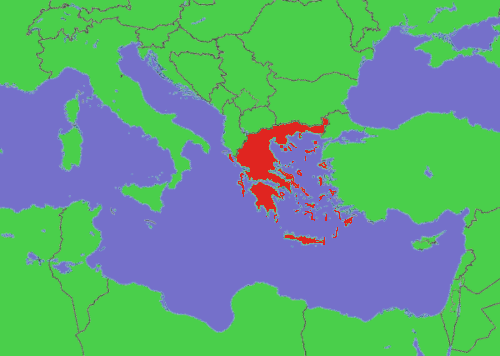
Circle the area on this map

B. The migrants had sailed from Libya in North Africa and were bound for Italy, which is separated from Greece by the Ionian Sea, an elongated bay of the Mediterranean. As many as 500 persons remain missing after the ship sank in international waters near the deepest spot in the Mediterranean – the Calypso Deep in the Ionian Sea.
D. In 2015, 1.3 million people arrived in Europe seeking asylum, the most in a single year since World War II. Most were Syrians fleeing civil war, but there also were Afghans, Nigerians, Pakistanis, Iraqis, and Eritreans. The UN says more than 20,000 people died in the Mediterranean over the past decade as they fled violence, hunger, and poverty – the causes of most human migration.
D. In general, migrants leave countries with poor, young, and fast-growing populations. They often seek opportunity in much richer nations with older and slow-growing populations. Migrants can supply needed labor to sustain economic growth, but they also may stir resentment and political upheaval as they change the ethnic makeup of the nations where they move.
A. We all descend from people who migrated to the Americas. It is believed the first people began arriving here from Asia about 15,000 to 20,000 years ago. They were followed thousands of years later by new waves of migrants – some violently forced – from Africa, Asia and Europe. Scientists say human beings originated in Africa and migrated throughout the world from there.